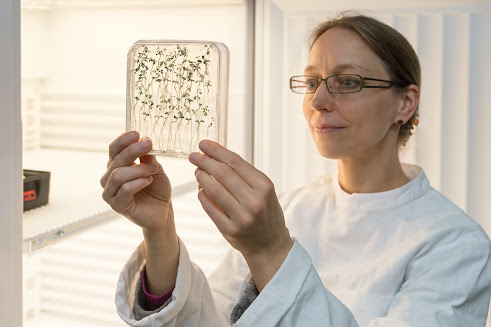 |
| Whalen Dillon recording data in the experiment to assess the effects of invasion, drought and their interaction on longleaf pine responses to fire. Credit: UF/IFAS Camila Guillen |
Synergy isn’t always a good thing — take climate change and invasive plants.
Scientists have long hypothesized that climate change, by intensifying stressors like drought or wildfires, would make an ecosystem more vulnerable to invasive plants. Those invasive plants may in turn alter the environment in ways that amplify the impacts of climate change, explained Luke Flory, a professor of ecology in the UF/IFAS agronomy department.
A new long-term field study conducted by Flory’s lab offers the first experimental evidence to support this hypothesis.
The study, published in the journal Ecology Letters, exposed small plots of long-leaf pine to three scenarios: drought conditions, colonization by the invasive plant cogongrass and a combination of these two factors.
To test how the different scenarios influenced the trees’ survival, scientists added another stressor: fire. But before lighting the first fire, the team waited almost six years for the trees to grow under each scenario.















.jpg)
